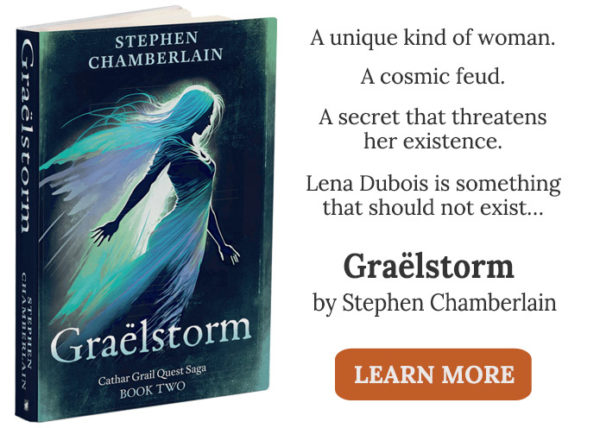“Oh, what a tangled web we weave…
when first we practice to deceive.”
― Walter Scott.
Any historical novel, however well researched, is still a work of fiction. To my mind that means writers should focus on telling a great story and should incorporate only enough anecdotal history as is necessary to bring the plot to life and give it authenticity. Novelists are storytellers, not historians. That doesn’t mean authors should play loose with facts. Unless they pitch a novel as alternative history, nothing pulls me out of a story quicker than a glaring inconsistency or the reworking of sloppy research.
Telling Fact from Fiction
That begs the question of what constitutes an objective fact within the context of historical research. Winston Churchill is credited with saying, “History is written by the victors.” What Churchill meant is that our perception of historical events is moulded by prejudices of those who recorded them. Take the Vikings. For centuries, the notion of bloodthirsty marauders came down to us from propaganda written by their monastic victims. Axe-wielding pirates they may have been, but thanks to modern archaeology we know them now in a broader context: as skilled traders, farmers, administrators, and craftsmen.
I ran into the challenge of fact-checking when I was researching the Cathar faith for my novel Graëlfire. Little of their medieval writings or scriptures survived destruction by the Catholic Church in its zeal to stamp out the heresy. Consequently, much of what we know of Catharism is gleaned from accounts of the Inquisition that persecuted them. So complete is the absence of contemporary sources that revisionist historians question whether the Cathars existed, alleging they were “fake news” invented by the medieval Church—a common enemy calculated to unite public opinion against religious dissidents.
History will always be open to interpretation. But let’s face it: it wouldn’t be the only time someone in power has used common-enemy rhetoric to attract supporters to their cause.
Lies, Lies, and More Lies
Nowadays, the technique of repeating a lie so often that people believe it is called the “Big Lie.” Sound familiar? It should, because we hear it over and again: “Saddam has weapons of mass destruction.” “Brexit will create £350 million a day to give to the NHS.” “When Mexico sends its people, they’re not sending their best…They’re bringing drugs. They’re bringing crime. They’re rapists.” And so on. If history teaches us anything, it’s that politicians may deceive us to make tactical gains. And once they have their target in sight, they will push their fictions with unrelenting stubbornness.
The fact is, people are susceptible to fake news when the deceiver is telling them what they want to hear. It’s human nature. We prefer to have our views endorsed, not challenged. We want the lie to be true. As Molière said, “We are easily fooled by that which we love.”
It’s About Power
According to P. T. Barnum, “You can fool some of the people all of the time, and all of the people some of the time, but you cannot fool all of the people all of the time.” That may be enough to deter most of us from lying, but it’s an acceptable benchmark for wily politicians. After all, they don’t have to turn everyone to their point of view. They only have to convince enough of us to vote them into power.
That’s why some officials don’t care about getting their facts right. Setting the record straight isn’t what matters; it’s getting their viewpoint across. Their deceptions are just vehicles to manipulate the public. The lies don’t even have to be convincing if enough like-minded voters subscribe to them. Spokespeople give their spin, supporters pretend to believe them, and everybody participates in the shared pretense. It’s all for the good of the common cause. Even those who say nothing take part by omission.
Time Will Tell
Winning an argument is not the same as being right, but there’s a difference between spreading barefaced lies and reaching opposing opinions from the same set of facts in good faith. Liars are dishonest; they intend to mislead. What’s more, lies snowball and compulsive liars have a way of undermining themselves. As U.S. president Abraham Lincoln once said, “No man has a good enough memory to be a successful liar.” Sooner or later, they become entangled in their fictions and will resort to more falsehoods to cover themselves.
Fiction abounds with deceivers, because lies are engines of successful plots. They seed conflict and cast misdirection. Look at Shakespeare’s Othello. The tragedy hinges on the villain Iago’s ability to mislead other characters by encouraging them to misinterpret what they see. Iago harbours resentment because Othello promoted another soldier, Cassio, over him. He also suspects that Othello has had an affair with his wife. Intent on revenge, Iago plants suspicions in Othello’s mind that his wife Desdemona has been unfaithful to him with Cassio. Maddened by jealousy, Othello strangles Desdemona and then commits suicide. But not before Iago kills his own wife when she exposes his intrigue. In the end, Iago is imprisoned and tortured for his crimes. The moral of the play is that lies have consequences—for the liar as well as the deceived.
The Internet is a double-edged weapon for those who seek deceive us. Social media may facilitate their dissemination of lies, but the Web hosts a wealth of sources that can be used for fact-checking. For those who use the Net in the war on facts, a proverb comes to mind: “Live by sword, die by the sword.”

Stephen Chamberlain is the author of the fantasy novel Graëlfire. He draws inspiration from the impact of landscape on myth, and the association of liminality with the supernatural and magic. Stephen lives in Switzerland.



